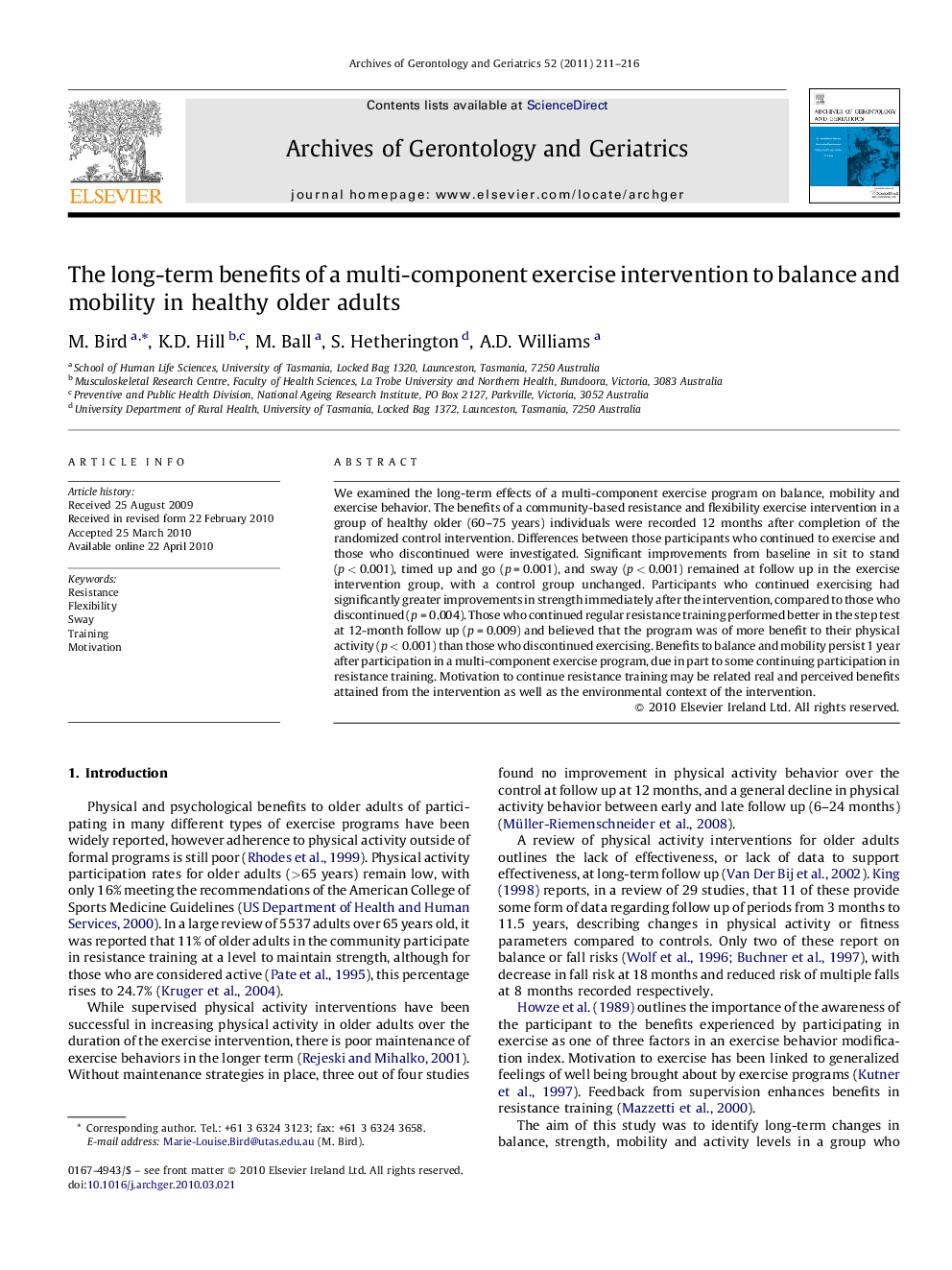| Article ID | Journal | Published Year | Pages | File Type |
|---|---|---|---|---|
| 1903133 | Archives of Gerontology and Geriatrics | 2011 | 6 Pages |
We examined the long-term effects of a multi-component exercise program on balance, mobility and exercise behavior. The benefits of a community-based resistance and flexibility exercise intervention in a group of healthy older (60–75 years) individuals were recorded 12 months after completion of the randomized control intervention. Differences between those participants who continued to exercise and those who discontinued were investigated. Significant improvements from baseline in sit to stand (p < 0.001), timed up and go (p = 0.001), and sway (p < 0.001) remained at follow up in the exercise intervention group, with a control group unchanged. Participants who continued exercising had significantly greater improvements in strength immediately after the intervention, compared to those who discontinued (p = 0.004). Those who continued regular resistance training performed better in the step test at 12-month follow up (p = 0.009) and believed that the program was of more benefit to their physical activity (p < 0.001) than those who discontinued exercising. Benefits to balance and mobility persist 1 year after participation in a multi-component exercise program, due in part to some continuing participation in resistance training. Motivation to continue resistance training may be related real and perceived benefits attained from the intervention as well as the environmental context of the intervention.
